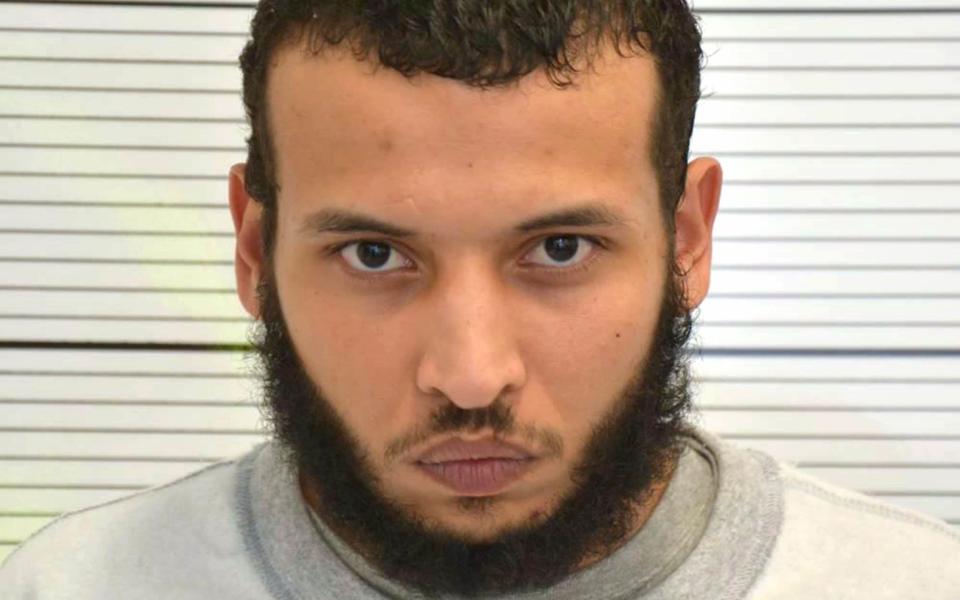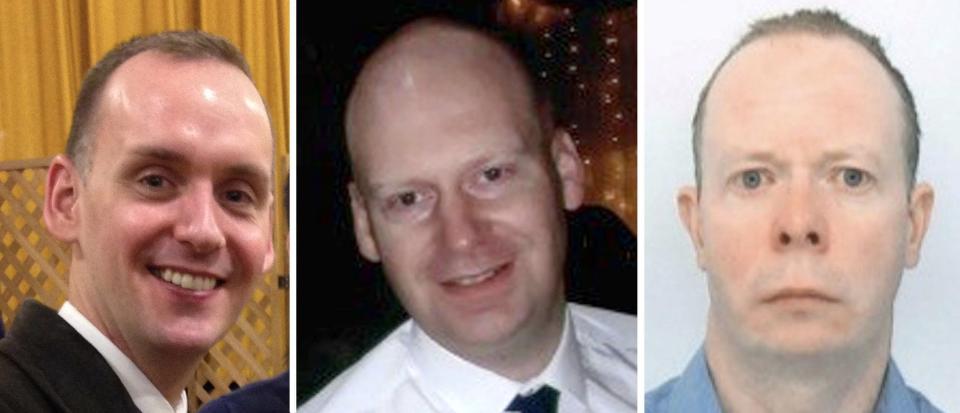Police lost chance to deport Reading terror attacker because he ‘ate a mattress’

A Libyan refugee who murdered three people in the Reading terror attack could not be deported as he was facing trial over accusations that he ate a mattress at a police station, an inquest has heard.
Khairi Saadallah, who came to Britain as an asylum seeker in 2012, stabbed friends James Furlong, 36, Dr David Wails, 49, and Joseph Ritchie-Bennett, 39, to death in the Berkshire town’s Forbury Gardens on June 20 2020.
A pre-inquest review hearing at the Royal Courts of Justice in London on Monday heard that the previous July, Saadallah had been arrested for spitting at a police officer and had then damaged a mattress in his cell.
The hearing was told that plans to deport Saadallah – whose asylum claim had been turned down by the Home Office – were delayed because of the pending court proceedings against him.
Nicholas Moss KC, counsel to the inquest, said in court papers: “On that date, Saadallah is said to have attended Reading police station, spat at a detention officer after arrest and damaged a mattress by eating it.
“He was charged, pleaded not guilty, released on unconditional bail and his trial was adjourned due to Covid.
“It appears that Saadallah was next due in court for these offences in July 2020 – after the date of the attack.”
Home Office staff emailed Thames Valley Police on May 28 2020, stating that they planned to deport Saadallah but were unable to “until the impending charges had been dealt with”.
However, other Home Office staff were arguing against deporting Saadallah as it was dangerous for him to return to Libya at the time, the hearing was told.
The charges – being drunk and disorderly, destroying or damaging property and assault by beating of an emergency worker – were dropped on June 1 2020, shortly before the attack.

Mr Moss said solicitors to the inquest have requested a witness statement from the Crown Prosecution Service “addressing why the decision was made not to pursue” the charges.
He added: “Whatever the right and wrongs of that, it appears from that exchange between the CPS and the Home Office, charges were dropped, due to what may be thought to have been a misunderstanding or miscommunication about the status of Mr Saadallah.”
Three other people – Stephen Young, 51, Patrick Edwards, 29, and Nishit Nisudan, 34 – were injured before Saadallah threw away the eight-inch knife and ran off, pursued by an off-duty police officer.
In January 2021, the killer was handed a whole-life sentence at the Old Bailey after pleading guilty to three murders and three attempted murders.
Saadallah, a former child soldier from Tripoli, had a long history of links to Islamic extremism and had shouted Allahu Akbar as he attacked his victims.
After arriving in the UK in 2012, he racked up a string of criminal convictions for violence and despite having his asylum claim rejected remained in the country.
Coroner Sir Adrian Fulford PC KC told the court “no relevant stone will be left unturned” during the inquest.
Nick Harborne, chief executive of the Refugee Support Group, told the court that the scope of the inquest should go back to 2016, when his organisation was first aware of “the potential of his violence and the vulnerable state of his mental health”.
Saadallah had informed the organisation that he wanted to return to Libya to “avenge the deaths of his family members” and “martyr himself”, the court heard.
Mr Harborne said: “We spent four years after 2016 trying to get some mental health support. He came as a minor, a vulnerable young person with the trauma of being a child soldier.”
Victim’s father attended court
Mr Furlong’s father, Gary, who attended the court, said on behalf of the victim’s families after the hearing: “Our principal wish remains that lessons may be learned, and effective measures put in place to prevent others suffering the tragedy that we have endured.
“To achieve this aim, we know that any failings that caused or contributed to the deaths of James, Joseph and David must be identified.
“We have every confidence that the new judge coroner Sir Adrian Fulford and his team will do so.
A further pre-inquest review hearing will take place on Sept 18 and 19 at the High Court, with full proceedings set to begin in January 2024.

 Yahoo Sports
Yahoo Sports 